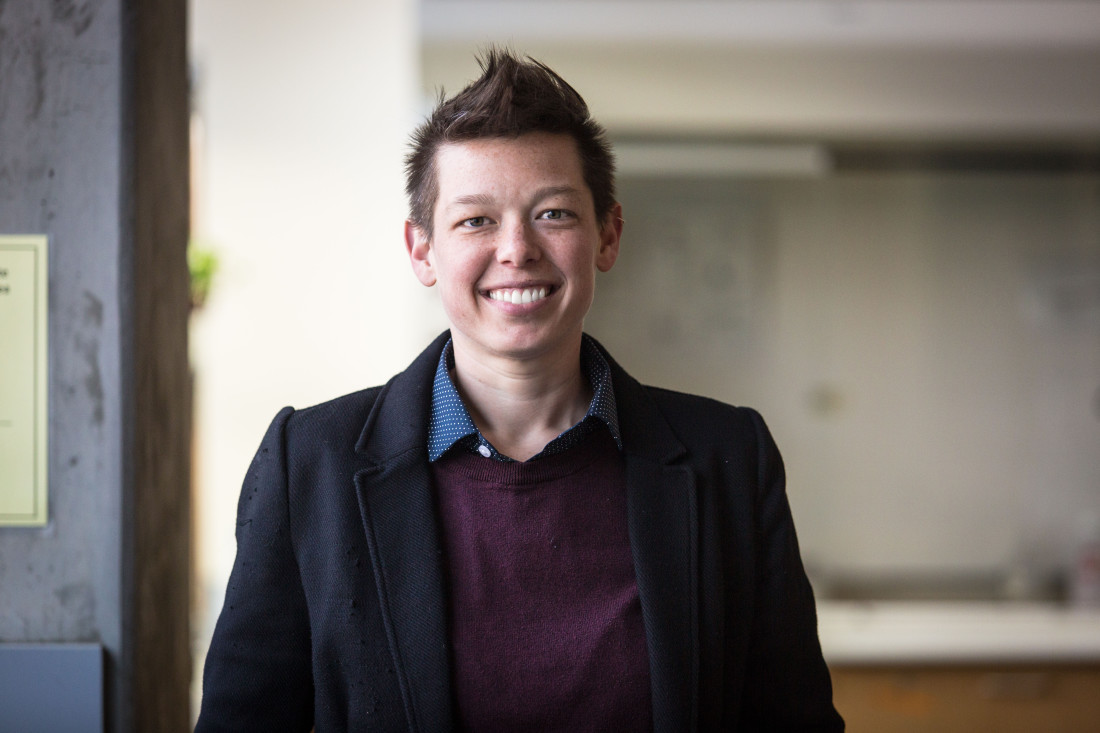Press release from UNC Asheville:
UNC Asheville’s Amanda Wolfe has been named a 2017 Cottrell Scholar, an honor that comes with a $100,000 prize from the Research Corporation for Science Advancement (RCSA). The funding will be used to support Wolfe’s chemistry research and teaching over three years.
Wolfe, an assistant professor of medicinal chemistry, leads a lab at UNC Asheville working to develop new antibiotics, with her undergraduate students playing a significant role in the research.
“The Cottrell Scholar (CS) program champions the very best early career teacher-scholars in chemistry, physics and astronomy by providing these significant discretionary awards,” said RCSA Senior Program Director Silvia Ronco. Only 14 chemistry scholars nationally earned the honor in 2017, including two from MIT and one each from Princeton and Duke Universities.
“This is a very competitive and difficult award for faculty at undergraduate institutions to earn,” said Bert Holmes, UNC Asheville’s P.G. Carson Distinguished Professor of Science and Wolfe’s colleague on the chemistry faculty. “But in her four years here, Dr. Wolfe has already secured significant funding from the North Carolina Biotechnology Center and is one of the leaders on the work funded by the university’s $1.5 million North Carolina GlaxoSmithKline Foundation grant. So I am not surprised that RCSA and their reviewers recognized the significance of Amanda’s ideas and her ability to conduct the proposed work.”
“In my research, I look for and try to develop novel antibiotics,” said Wolfe. “Pathogenic bacteria that can cause us harm are able to diversify themselves to become resistant to the drugs that we have on the market, and they’re doing it much faster than we’re able to make new compounds in the laboratory. If we don’t amp up our antibiotic development globally, we’re going to return to a time when a small cut or infection can become serious or even deadly because we don’t have effective antibiotic treatments.
“In my lab, we’re working to isolate new antibiotics generated by bacteria themselves,” she said. “Non-harmful bacteria produce their own antibiotics naturally to protect against invading bacteria, so we put two or more bacteria together to create competition, and then we isolate any chemicals they produce. Our goal is then to see how potent the molecule is and see if it can kill resistant bacteria strains. We do some of this here at UNC Asheville and some in collaboration with other groups. This work is the early phase of drug discovery – if we can find new molecules and put them out in the chemical literature, then bigger labs and pharmaceutical companies can use that knowledge and jump into developing those classes of molecules.”
Teaching also was an important consideration in the RCSA award, and according to UNC Asheville Chemistry Department Chair, Associate Professor Herman Holt who shares lab space with Wolfe, she role models intensity of focus and efficiency for her students. “They realize that they need to be up on their game and they rise to that because she’s a great teacher,” said Holt. “She’s also been a great mentor for students – they’re very comfortable going to her whether to talk about chemistry or other things. So she’s been very impactful on the success of the department. We’ve had an increase in chemistry majors and we’ve graduated approximately 25 students each of the past few years.”
The $100,000 award to Wolfe from RCSA will fund laboratory and teaching supplies, and pay student researchers in the summer, so they can continue the research when classes are not in session and they aren’t earning course credit. The continuity is crucial for training the next generation of researchers just as it is for the actual research.
“In the integrated drug discovery lab that RCSA is helping fund, students will gain hands-on experience in the drug discovery process, from computational modeling all the way up through actually testing the molecules they synthesize in a biological assay,” said Wolfe. “This lab will be part of a set of integrated project labs that will give our students even more real world, hands-on research experience.”
Originally from Bridgeport, West Virginia, Wolfe graduated summa cum laude from NC State University with a B.S. in chemistry. She then earned her Ph.D. at The Scripps Research Institute in La Jolla, California, where she conducted research on the synthesis and evaluation of naturally occurring anti-cancer agents. Wolfe joined the UNC Asheville faculty in 2013, immediately after completing her graduate work.
“What drew me to Asheville four years ago was its huge dedication to undergraduate research. In the Chemistry Department, we require all of our majors to do at least four semesters of research which is pretty much unheard of at the undergraduate level,” said Wolfe. “The fact that we do it for each and every one of our students and that they all do actual real chemistry that is new and is publishable in the chemical community is huge. I think it prepares our students well for whatever they do after receiving this degree.”




Before you comment
The comments section is here to provide a platform for civil dialogue on the issues we face together as a local community. Xpress is committed to offering this platform for all voices, but when the tone of the discussion gets nasty or strays off topic, we believe many people choose not to participate. Xpress editors are determined to moderate comments to ensure a constructive interchange is maintained. All comments judged not to be in keeping with the spirit of civil discourse will be removed and repeat violators will be banned. See here for our terms of service. Thank you for being part of this effort to promote respectful discussion.